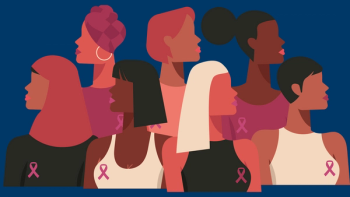
In 17 years, the mortality rate for Black women with breast cancer has not changed.

In 17 years, the mortality rate for Black women with breast cancer has not changed.

Advanced practice providers play a critical role in increasing palliative care referrals.

Entering the words nutrition and cancer into Google returns as many as 718 million hits. With an overabundance of opinions, it can be challenging to separate fact from fiction.

The Transparency in Coverage Final Rule requires health care payers to unveil all previously secret negotiated prices with in-network providers.

Most patients who receive immunotherapies will experience few, if any, treatment-related adverse effects (AEs). But some patients receiving these treatments can experience serious AEs caused by an overactivation of the immune system and its effects on healthy cells.

Powerful chemicals used in chemotherapy may pose safety hazards for oncology nurses, pharmacists, and other health care providers if not handled properly.

In an unprecedented age of health care burnout, hospital administrators may need to think outside of the box to find ways to engage and support employees.

The FDA has approved lisocabtagene maraleucel as a second-line treatment for patients with relapsed or refractory large B-cell lymphoma.

In this episode of The Vitals, Donna Herrera Bell, MSN, APRN, FNP-C, highlights how nurses can eliminate barriers to fertility discussions among adolescent and young adult patients with cancer.

Nivolumab in combination with fluoropyrimidine- and platinum-containing chemotherapy and nivolumab plus ipilimumab received FDA approval as a first-line treatment for adult patients with unresectable advanced or metastatic esophageal squamous cell carcinoma, irrespective of PD-L1 status